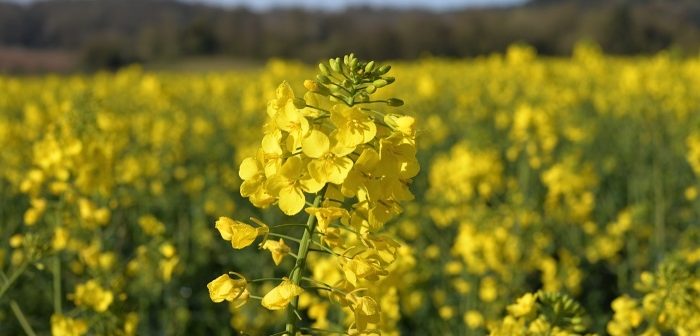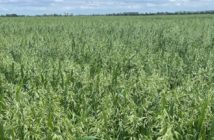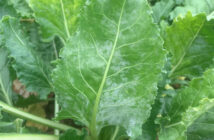A wet August has prompted an early warning for Phoma to oilseed rape growers, who managed to get crops drilled and away quickly
In the South and East some farmers were able to be ‘drilled up’ quickly during August. But with the month’s cool and wet weather, with some areas having half the average monthly rainfall in the first 10 days of the month, growers are being advised to check whether Phoma thresholds have been exceeded.
Constant re-wetting of crop debris favours airborne Phoma spore development and release, with farmers are advised to treat the disease when plants affected reaches 10-20%.
Twelve days with rain have already been recorded at ADAS sites in Cambridgeshire and Herefordshire, notes Faye Ritchie, ADAS plant pathologist. “It all depends on what happens from here, but it has been a wet start to August and spores require roughly 20 days with rain to mature. If it remains unsettled then we could expect to see leaf spotting in late September. However, monitoring crops to determine when thresholds are met will be what matters most.”
The benefit of the rain is crops got out of the ground within five days of being drilled, and good growth could limit the disease spreading from leaves to petiole and then stems.
Bayer’s Jack Hill says that with many varieties having the RLM7 resistance gene it does offer some resilience against the disease, but he warns that it will not necessarily negate treatment. “A good Phoma rated variety will help delay the 10-20% plant affected threshold being reached, but might not mean you can avoid having to treat at all.
“In the East a good part of the OSR area was drilled in good time. That means the gap between harvest and the 17/18 crop being drilled was particularly short and OSR emerging close to harvested stubble could be at high risk. If you do have to go early for Phoma it makes sense to guard against early light leaf spot too. With Proline275 (prothioconazole) being active against both diseases it makes it the logical choice.”




